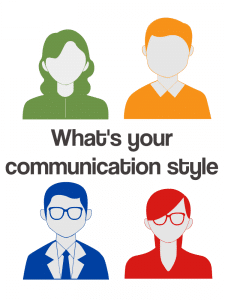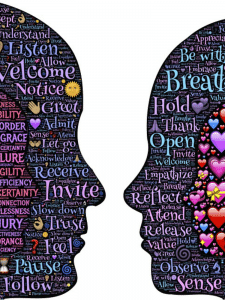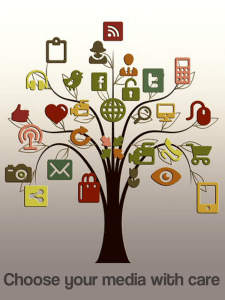How to Improve Communication Skills – Avoid These Common Mistakes
I first got interested in how to improve communication skills almost forty years ago, when I started working for a large corporation. I slowly became aware that most of the problems that occurred in the business were rooted in that mysterious process that we glibly label “communication.”
Sometimes the cause was a complete lack of communication, (deliberate or accidental). Often it was down to a mere misunderstanding of what a particular communication meant.
Since then we have had a revolution in communications technology with the advent of a host of tools like Mobile Phones, SMS, Emails, the Internet, Instant Messaging and Video Chat but the problems I saw back then haven’t gone away. In fact, they have got worse. Now there are even more opportunities for miscommunication!
Why is this and, perhaps more importantly, what can we do about it?
In this extended article, I’ll look at how to improve communication skills. I’ll cover the primary reasons for the continuing lack of good communication skills and share many of the lessons I have learned to minimise misunderstanding.
What is communication?
“The single biggest problem with communication is the illusion that it has taken place.“
George Bernard Shaw
My definition of communication is transmission and reception of information and ideas between two or more people. Using this definition, communication can only be said to have been successful if the receiver has the same understanding of the meaning of the message as the sender.
It sounds simple but, when you start to look at what happens behind the scenes, you’ll start to realise that it’s amazing that we ever manage to communicate with any degree of accuracy. There are so many things that can go wrong!
Who is responsible when communication fails?
 Imagine that you ask a friend, colleague or family member to do something for you. Let’s say you ask them to go to the shops and buy a pack of biscuits. It’s not a big ask, and you think that you have been clear, But when they have come back they present you with the “wrong” type of biscuits. Who’s fault is it? At whom are you pointing the finger?
Imagine that you ask a friend, colleague or family member to do something for you. Let’s say you ask them to go to the shops and buy a pack of biscuits. It’s not a big ask, and you think that you have been clear, But when they have come back they present you with the “wrong” type of biscuits. Who’s fault is it? At whom are you pointing the finger?
It’s them right?
They didn’t listen, they are stupid, they had their own agenda, or they did it deliberately to annoy you. Or is it?
- Were you specific about the type of biscuits you wanted or did you assume that they knew your favourite?
I know that this seems like a trivial issue, but it illustrates the importance of taking responsibility for the effectiveness our communication. Blaming another person puts us in victim mode. Accepting responsibility empowers us to change things for the better.
“The meaning of your communication is the response it produces.“
So let’s look at the most common causes of failure in the communication process and consider what we could do to prevent them in future.
Common reasons why communication fails
1. Being unclear about what you want the other person to do
 Have you ever been stumped when have been telling someone about a situation or problem at work, and they stop you and say “So what do you want me to do?” If we are not clear about the outcome of our conversation how can we expect the other person to know what we want?
Have you ever been stumped when have been telling someone about a situation or problem at work, and they stop you and say “So what do you want me to do?” If we are not clear about the outcome of our conversation how can we expect the other person to know what we want?
One of the simplest and quickest ways to become a better communicator is to start by thinking about what you want to achieve BEFORE you compose your message. This little, how to improve communication, tip works equally well whether you are speaking face to face, on the phone, or via written communication including SMS and email. Invest a little time to get clear about your intention up front, and the rest of your communication will be much more effective.
2. Failing to think about the person you are communicating with
 The second commandment of good communication skills is to give some thought to the person or persons you intend to communicate with. Ask yourself the following questions:
The second commandment of good communication skills is to give some thought to the person or persons you intend to communicate with. Ask yourself the following questions:
What’s their communication style and how does it differ from my own?
It should come as no surprise that we don’t all have the same communication style. Think about your friends and colleagues. Do any of them drive you nuts because they go into excruciating details about the most mundane of topics? They almost certainly do this, not because they are trying to annoy you, but because it’s the way their brain works. A combination of genetics and upbringing have programmed them to love the detail. You, on the other hand, may be a big picture thinker, with a different less detail oriented approach. These preferences will inevitably express themselves in the way we communicate with others.
The secret of how to improve communication is to learn about the other personality types and how to adapt your natural style so that you meet others who are different half-way.
There are many communication models to help us understand these differences. My personal preference is something called the Social Styles Matrix.
3. How much do they already know about my subject?
Are you familiar with the expression “pushing against an open door.” It’s a metaphor relating to the situation where you find yourself trying to persuade someone about an approach or idea that they already agree with. Conversely, I have seen managers, salespeople and speakers get into all sorts of trouble because they assumed that their audience was broadly in agreement with them when the reverse was true.
Take time to think about the starting point of your audience and ask yourself how it compares with where you want them to be, to do what you want them to do. It’s my experience that meeting them where they are, and then gently guiding them along a path to where you need them to be, has a better chance of succeeding than preaching to them about why they should change their mind.
4. Failing to appreciate the “curse of knowledge.”
 Lots of research in economics and psychology shows that the more we know about something, the harder it becomes to imagine not knowing it. As a result, we become poor communicators. This cognitive bias, often called “the curse of knowledge” causes us to unconsciously assume that other people have enough background to make sense of our communication when they don’t.
Lots of research in economics and psychology shows that the more we know about something, the harder it becomes to imagine not knowing it. As a result, we become poor communicators. This cognitive bias, often called “the curse of knowledge” causes us to unconsciously assume that other people have enough background to make sense of our communication when they don’t.
I am confident you will have experienced the curse of knowledge if, for instance, you have ever tried to show an older person how to use a new smartphone or computer. What’s also fascinating is how their apparent stupidity seems magnified, often causing us to lose patience with them. So next time you are communicating something that you have spent a lot of time thinking about, ask yourself this question
“What information do I have that allows me to understand this communication that they don’t?”
5. Shying away from “difficult” conversations
 Often, when I run workshops, somebody will come up to me during the break and ask my advice about a relationship issue that is usually, work related. The conversation usually goes something like this.
Often, when I run workshops, somebody will come up to me during the break and ask my advice about a relationship issue that is usually, work related. The conversation usually goes something like this.
Them – “Uhm… I’ve got a problem with one of my colleagues. He/she has a habit of doing “X”, and it’s driving me crazy. What do you think I should do about it?”
Me – “I see, and have you talked to them about it?”
Them – “Oh no, I couldn’t do that!”
Me – “Why not?”
Them – “I don’t think they’d take it very well and I might upset them and make things worse.”
Does this ring any bells with you? My advice is usually to find a way to have this conversation before the relationship breaks down irreparably. The longer you leave it, the harder it is. What often happens is that people bottle their frustrations up until they can’t take it any longer and they either leave or lose their temper with the other person.
My advice for how to improve communication skills in this type of situation is usually to find a way to have this awkward conversation before the relationship breaks down irreparably. What often happens is that people bottle up their frustrations until they can’t take it any longer and they either leave or lose their temper with the other person.
If it helps, involve an independent “mediator” to make sure that you keep your calm and explain your frustrations in an emotionally neutral manner. Avoid blaming the other person. In my experience, people are often completely ignorant of the fact that their behaviours may be irritating to others. Assertively expressing your feelings will often resolve or at least reduce the problem, and you will feel better because you have found the courage to speak your truth honestly.
6. Failure to take account for linguistic ambiguity.
 This one is closely related to the curse of knowledge I mentioned earlier. I was prompted to include it after asking my Facebook followers for examples of their least favourite communication practices. John Vearncombe, an old friend, explained it thus: “So many people don’t think about what they say and assume that everyone will understand the words they way they meant them without understanding other possible interpretations. For example, If someone says “I’m mad about my flat.” What do they mean?
This one is closely related to the curse of knowledge I mentioned earlier. I was prompted to include it after asking my Facebook followers for examples of their least favourite communication practices. John Vearncombe, an old friend, explained it thus: “So many people don’t think about what they say and assume that everyone will understand the words they way they meant them without understanding other possible interpretations. For example, If someone says “I’m mad about my flat.” What do they mean?
“So many people don’t think about what they say and assume that everyone will understand the words they way they meant them without understanding other possible interpretations. For example, If someone says “I’m mad about my flat.” What do they really mean? Do thy love their apartment or are they cross after getting a puncture?
Choose your language with care and aim to minimise the chances of misunderstanding.
Note: What is much easier when we are putting out thoughts down on paper or in an email. I have developed the habit of double checking my writing, and then eliminating any ambiguous words or adding any additional explanations to increase the chance that my readers will understand what I meant.
7. Failing to check that the receiver understands you correctly
 If we are serious about taking responsibility for our communication, we should recognise the need to check that the other person has the same understanding of what we mean as we do. It’s not enough to assume that, if they didn’t ask us any questions, they understand.
If we are serious about taking responsibility for our communication, we should recognise the need to check that the other person has the same understanding of what we mean as we do. It’s not enough to assume that, if they didn’t ask us any questions, they understand.
How many times have you sat in a meeting listening to a speaker while thinking “You’ve lost me, I haven’t got a clue what you are talking about.” Then, when the speaker asks if you understood, you all nod sagely.
If you are the presenter, assume that your audience is lying! Ask them to paraphrase back what they think you want them to do and why.
If you are the listener, find the courage to raise your hand and ask a question and keep doing so until you understand.
8. Using the wrong communications media
 As I mentioned earlier, we now have a bewildering array of communications tools at our disposal as well as good old-fashioned face to face communication. Phone, emails, SMS, IM, WhatsApp, Facebook, Skype, etc.The problem is that some channels are better for some times of communication than others.
As I mentioned earlier, we now have a bewildering array of communications tools at our disposal as well as good old-fashioned face to face communication. Phone, emails, SMS, IM, WhatsApp, Facebook, Skype, etc.The problem is that some channels are better for some times of communication than others.
Shirley Moreman, a business buddy of mine told me that her communication pet hate is “To and fro text/emails” and went on to suggest that, “unless there’s a good reason not to, just pick up the phone and talk to each other“.
I have to agree with her, particularly when it comes to complex issues that need lots of explanation.
I am not going to make any more recommendations on which media to use when because those choices will vary depending on multiple factors including:
The subject matter of your message.
The need to keep a written record of the conversation, or otherwise.
The complexity of your message.
The age of the person being communicated with.
How to improve communication skills
All of the ideas mentioned above are powerful in their own right. I suggest that you pick the communications error that you are most guilty of and then focus on improving that area for at least a month. You’ll almost certainly find yourself unconsciously making other improvements too but, but please put all your conscious effort behind just one aspect.



